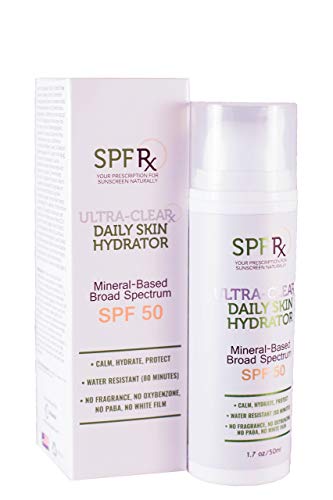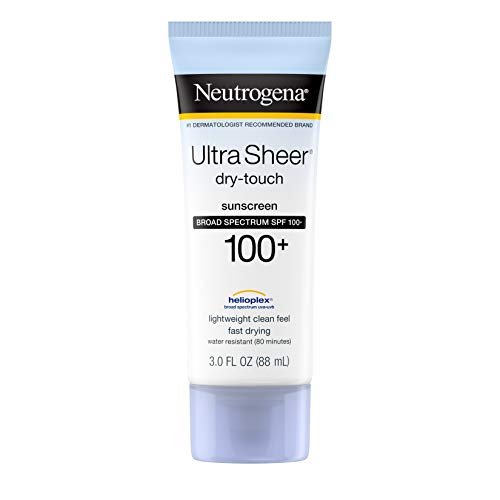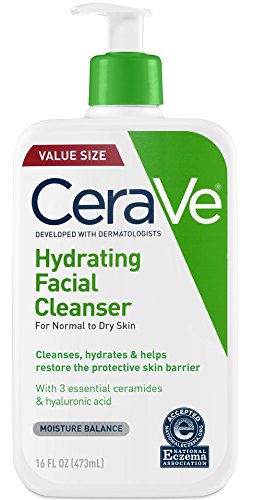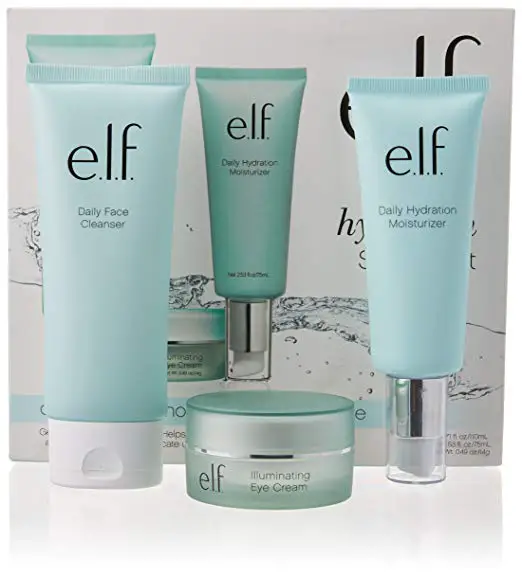Is protecting your skin from the sunrays important? Have you heard of sunblock and have been considering trying one out? Do you know that you must wear sunblock every day whether it is sunny, cloudy, hot or cold? Are you confused between using sunscreen or sunblock?
Whether the sky above is bright or dull, the sun’s rays are harmful and it is the source of skin damage. This means you need sun protection. There are diverse forms of sun protection products available which can leave you confused about the ideal one to use.
Popular sun protection products available are sunscreen and sunblock which people use interchangeably to mean the same thing. You might not even have realized that they are differences between sunscreen and sunblock and have often substituted one for the other. You are about to learn all about it.
In the event you do not know, sunblock is different from sunscreen. Sunblock blocks the sun’s UV rays from reaching the skin by creating a layer of protection on the surface. It is usually formulated to be quite thick so that the sun’s UV rays cannot penetrate it.
Sunblock is active in preventing sunburn that can permanently damage the skin and even cause skin cancer. Therefore, it is a skincare item you should have.
Table of Contents
Difference between Sunscreen and Sunblock
To achieve the type of protection you need for your skin, you should understand the differences between sunscreen and sunblock. Knowing the differences between sunscreen and sunblock can guide you in making the right choice in protection from the sun.
You are about to learn all about it.
1. Sunblock often appears white on top of the skin while sunscreens tend to be less visible on the skin.
2. Sunblock, just as the name sounds, deflects the rays of the sun away from your skin, keeping them from penetrating. On the flip side, sunscreen absorbs the UV radiation from the sun into itself, instead of letting it get into your skin.
3. Sunblock active ingredient is titanium or zinc oxide, which makes it thick and gives it a visible appearance. Sunscreen ingredients are chemicals like oxybenzone, avobenzone, octinoxate, octocrylene, and homosalate.
4. Sunscreen ingredients tend to give way after some hours under the sun. This means that when you use sunscreen and you intend to stay under the sun for a long time, you may have to reapply it over and again. Sunblock lasts longer on the skin when applied compared to sunscreen and you do not need to reapply frequently.
Importance of Using Sunblock
If you think using sunblock is not for you, you should read the benefits below and then decide. Take note: these are not the only benefits.
It Protects Your Skin from UV Rays
Sunblock as the name sounds, blocks harmful UV rays blocks these rays greatly reducing the likelihood of sun damage.
It Lowers Skin Cancer Risk
By applying sunblock each day, you cut your risk of contracting skin cancer in half.
It Prevents Premature Aging of the Skin
Sun damage from UV rays causes the breakdown of collagen which results in photo-aging of the skin. Regular application of sunblock reduces your chance of getting fine lines, sagging, and wrinkles on your skin.
Sunblock Helps Maintain an Even Skin Tone
The essential skin proteins – collagen, keratin, and elastin are protected by sunblock. Sunblock helps prevent discoloration and dark spots from sun damage, helping you maintain a smoother and more even skin tone.
Factors to Consider When Selecting Sunblock
Choosing the sunblock product for you can be tricky. Why is that? There are so many options available, which makes it difficult to choose one especially if it is your first time. Don’t worry; this sunblock buying guide is here to help you.
Skin Type
Before purchasing one, you must understand your skin type. There are different products available for various kinds of skin types. Just because you have never gotten burnt doesn’t mean you are immune to the sun rays.
If your skin is acne-prone, be sure to use a sunblock that has the label, non-comedogenic or oil-free. This is because blocked pores cause acne, and when the sunblock is too thick, this may occur.
If you have sensitive skin, select one that contains zinc oxides or even titanium because they can reduce the chances of irritation occurring. That is not all; avoid sunblock that has preservatives or fragrances.
People with light skin should select a stronger sunblock with SPF 50.
Ingredients
Any sunblock that contains ingredients like titanium dioxide and zinc oxide is highly effective in protecting the skin against UVA and UVB rays. Another active ingredient you should look out for is benzophenone, which protects the skin against UVA. Cinnamates and salicylates in a sunblock offer protection against UVB.
Other important ingredients you should look out for are oxybenzone, octyl salicylate, or octyl methoxycinnamate, avobenzone and benzophenone. Take note: do not use sunblocks that contain nuts and fruit extracts. Time has not shown them to be effective in blocking sun rays, and they may cause you to have adverse reactions.
Warning: Avoid sunblock containing vitamin A. Why does this matter? Research has shown that lesions, as well as tumors, grow quick on vitamin A-coated skin. Be careful when you see retinol or retinyl palmitate; they are the same as Vitamin A.
Take note: to further prevent your skin from becoming irritated by sunblock products. Instead, choose one that is dye, fragrance, and paraben-free.
Location
Another factor to keep in mind when selecting is the location. Choose a product in accordance with the climate of the area to protect yourself accordingly. If you live in the tropics, you need one with a higher SPF because of increased sun exposure rate.
SPF Ratings
SPF stands for sun protection factor. It is a number that indicates how effectively sunblock shields unprotected skin from damage caused by UV radiation. SPF usually has scales. So check out the scale below to help you understand better.
SPF 15 shields the skin from 93% UVB rays
SPF 30 shields the skin from 97% UVB rays
SPF 50 shields the skin from 98% UVB rays
SPF 100 shields the skin from 99% UVB rays
Take note: Keep in mind the above SPF rating to help you make informed buying choices.
Broad Spectrum
When a sunblock or sunscreen has broad-spectrum, it means that it has the ability to protect from both UVA and UVB rays. Where UVA rays usually cause aging and wrinkling, UVB rays can cause severe sunburn. However, both rays have the ability to cause cancer of the skin.
Water and Sweat Resistance
Water and sweat-resistant mean the sunblock is formulated to perform well despite the presence of water or sweat. Warning: cleaning your skin using a towel removes sunblock. So, regardless of the water and sweat resistance rating, you need to reapply one immediately after you use a towel.
Check out these interesting skin care product reviews/articles:
Neutrogena Men Skin Clearing Acne Wash – Comprehensive Review
What Can Cause Itchy Skin without a Rash? – In-depth Answer
How to Get Rid of Stretched Skin after Pregnancy – Extensive Answer
How to Exfoliate Sensitive Skin – Extensive Answer
What Lotion Is Good for Baby Dry Skin – Comprehensive Answer
How to Take Care of Face Skin in Winter – What You Need to Know
Tips to Get the Best Out of Shopping for Sunblock
The following tips in this sunscreen buying guide are written to help you make an even more informed decision.
The Length of Time Out in the Sun
The sunblock of your choice needs varieties according to the amount of time you would be spending outdoors. If you are going to spend a long time out in the sun, which is not advisable, use a sunblock that has a high SPF. Take note: There is no need to select a sunblock that is above SPF 50.
Don’t get carried away with labels with high SPF written on them. Such labels can give a false sense of protection. Even if there is no visible burn on your skin, it could be become damaged with long exposure. But being out in the sun for a very short period does not need you to use a sunblock with more than SPF 15.
Know the Kind of Activities that You Will Engage in
The kind of activities you are involved in should determine the type you should select. Select a sunblock that is water-resistant if you are prone to sweating a lot or if you plan to go swimming. This will protect your skin even when in the water.
Check the Expiration Date
Some sunblock is designed to last for three years. However, be careful when selecting one so you don’t choose the one that is close to the expiry date. Take note: If you use the recommended amount of sunblock, it won’t last very long.
Warning: after purchase, should you notice a change in consistency, smell or color, throw the sunblock away even if it is not expired.
Avoid Harmful Ingredients
Some sunblock contains harmful ingredients such as parabens, which may increase rates of breast cancer and facilitate the development of melanoma. Another harmful ingredient to avoid is oxybenzone as it breaks down the skin and causes other problems. That is not all: retinyl palmitate can increase your risk of cancer when exposed to the sun.
Look at the ingredients list and avoid such ingredients above as they cause harm and no good. Rather, consider selecting sunblock with ingredients like zinc oxide or titanium dioxide. These active ingredients sit on top of the skin rather than being absorbed.
That is not all: they are effective and safe.
Look for Broad Spectrum Sunblock
It is best to buy a sunblock that protects against both UVA and UVB radiation. Take note: many sunblocks only protects against UVB rays. Looking for a sunblock labeled broad-spectrum will help you in avoiding such sunblock.
Try Out a Sample
If you are undecided whether a particular sunblock would cause any kind of irritation on your skin, put a little on a tiny area of skin. After a short time, the result will inform you on which way to go.
Check the Internet While There
Conduct research on the internet when you get to a shop. Look out for the various sunblock available and compare. Don’t be carried away by advertisements. Be patient enough to look through each product and its makeup.
Focus your search on these criteria to find the best sunblock for you. Take note: a sunblock is only as good as the ingredients it contains.
Tips to Get Better Results Using a Sunblock
Using sunblock is just one aspect of sun protection, there are certain tips you should try out to get a better result.
Apply Sunblock before you Get Outdoors
Do not wait until you are outside to apply your sunblock. It is recommended that sunblock is applied 15 to 30 minutes before going out in the sun. Apply on all areas of the skin and give it a chance to absorb before putting clothing on.
Don’t skimp; use enough to get maximum results.
Try Taking Breaks When You are Outdoors
Avoid extended exposure to sun between 10 am and 4 pm when the sun’s rays are most intense. To limit your sun exposure when you are outdoors, take breaks from your outdoor activities and stay in a protected shied.
Instead of having a picnic without a shade, try to have one under a tree or take a canopy to the beach.
Pay Attention to Your Face
Sometimes, you might forget to cover your face with sunblock feeling it is not necessary. It is important that you do not neglect your face when applying sunblock. The most important areas to cover are your nose and ears because they are prone to severe sunburn.
That is not all: do not neglect the lips too. Do you know that melanoma can develop on the lips? Using a sunblock on the lips or lip balm with SPF 30+ can protect your lips too.
Keep your Sunblock from Direct Sunlight
Do not expose your sunblock to direct sunlight. Here is why: it would reduce the efficacy of the ingredients used and loose effectiveness in only a few months. Store sunblock in a cool dry place because heat and humidity are not good for it.
Eat Healthy Foods
The skin has a natural sun protection factor ( SPF)and it is called lycopene. Certain foods are known to increase lycopene in the body. An antioxidant like tomatoes, and other red and orange fruit and vegetables can boost your body production of lycopene.
Green tea is also healthy for the skin. That is not all eat fish, they are rich in omega-3 and have anti-inflammatory powers too. One food you should include it in your diet if you haven’t is dark chocolate.
Dark chocolate is packed with flavonoids that can help protect against sunburn.
Do not Sleep with a Sunblock
Your skin needs to breathe. Wash away your sunblock before going to bed. Do not forget to moisturize as it helps your skin recover.







